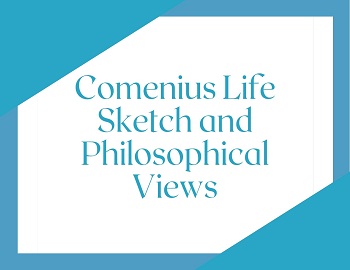Table of Contents
Rabindranath Tagore Vishwabharti University:
Tagore stated that a university should be a place of higher learning where differences of caste, colour and creed are eliminated. He believed that the citizens of future India will forget all these differences and will plan for a ‘Greater India’ or ‘New India’ and realize the greatness of our country. It is with this ideal in view that he called it Vishwabharti. He asserted that his university will be a place where the whole world will form one single nest. Here man will be a man and will think of his fellowmen as a man and nothing more.
Aims of Tagore Vishwabharti University:
The Memorandum of the Association of Vishwabharti lays down the objectives of Vishwabharti as under-
- Mind of man- To study the mind of man in its realization of different aspects of truth from diverse points of view.
- Cultures of the East- To bring into more intimate relation with one another through study and research, the different cultures of the East on the basis of their underlying unity.
- Approaching the West- To approach the West from the standpoint of such a unity of the life and thought of Asia.
- Unification of mankind- To seek to realize in the common fellowship of study the meeting of the East and West, and thus ultimately to strengthen the fundamental conditions of world peace through the establishment of free communication of ideas between the two hemispheres.
Constituents or Departments of Tagore Vishwabharti University:
- Vidya Bhawan (School of Research)- Vidya Bhawan is concerned with research in various subjects like Sanskrit, Pali, Hindi, Bengali, Indian Philosophy, Religions etc.
- Shiksha Bhawan- Shiksha Bhawan is a department where academic studies of a general nature are pursued. It plans all activities and academic pursuits.
- China Bhawan- It is concerned with Indian and Chinese studies. Its main objective is to find common grounds between Indian and Chinese culture and literature. It has a big library.
- Adhyapak Shiksha Bhawan- It is a training institute for teachers. It imparts training to prospective teachers of our country.
- Kala Bhawan- It provides education and training in fine arts and crafts.
- Sangeet Bhawan- It is devoted to the learning of music and dancing.
- Shilpa Bhawan- It is a school of industries. Students learn about industries.
- Hindi Bhawan- It is devoted to the promotion of the Hindi language and literature.
- Islamic Research Section- This department is concerned with Islamic Research.
All these departments are run in ancient spirit and on modern lines.
Features of Tagore Vishwabharti University:
- Natural Surrounding- It is located in natural surroundings. Classes are held in the open under the trees.
- Co-educational and residential- Vishwabharti is a co-educational and residential institution. It attracts pupils from different parts of the world. It has its own press, library, workshop, dairy farms, courts, hospitals and post office.
- Cosmopolitan- It is a cosmopolitan university in which students and teachers of all religions and nationalities live together on the same campus.
- Two aspects- There are two important aspects of this organization. The first part or the innermost circle is concerned with Indian culture, literature and further research. The second part or other circle consists of the pupils from other lands who come for their studies.
- Homely and spiritual atmosphere- Atmosphere is homely and prayers are sung.
- Co-curricular activities- Due to stress and place is given to co-curricular activities. All regular classwork is over by noon. The afternoons are devoted to cultural subjects like music, dancing, painting, physical training and games. Every one draws his own water from the well, washes his own clothes and sweeps his own room. Students are required to visit the neighbouring villages and hold night classes there for poor and low castes.
- Individual attention- Individual attention is paid to each and every student.
- Perfect discipline- Because of the homely atmosphere, perfect discipline prevails. Students themselves make rules and run the university.
- Simple Living- Simple living and high thinking is the noble ideal.
- Unity of Mankind– Unity of mankind, world peace and all universal cultures is emphasized. It stands for the uplift of humanity and elevating the personality of the individual as a man. A study of world religion is made so as to find out the essential unity in them.









Comments (No)